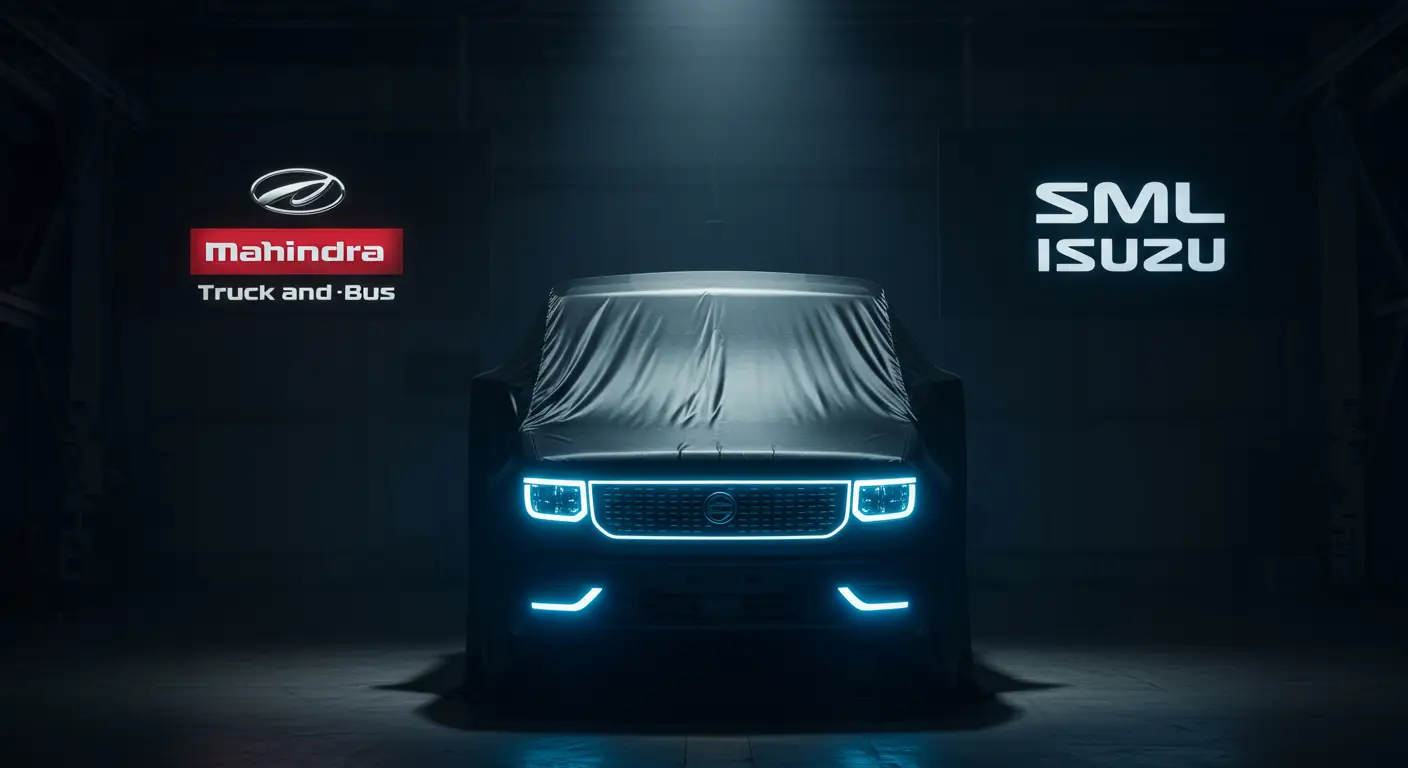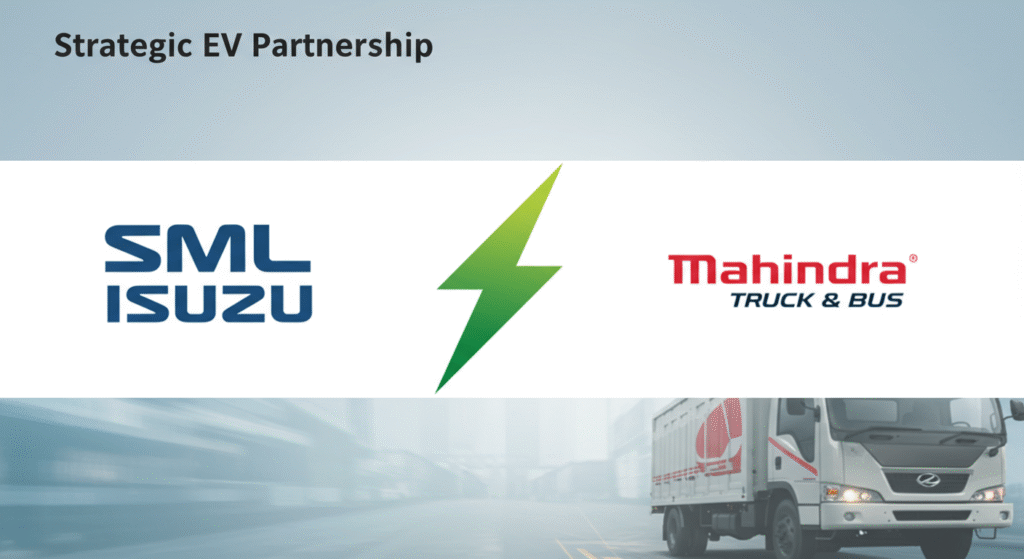
In a significant strategic move, Mahindra & Mahindra (M&M) has entrusted its associate company, SML Isuzu (SMLI), with leading the charge into electric mobility for its commercial vehicle arm. The SML Isuzu Mahindra EV collaboration will see SMLI develop and manufacture electric Light Commercial Vehicles (e-LCVs). These vehicles will then be marketed and sold under the Mahindra brand by Mahindra Truck and Bus (MTB). This partnership leverages SMLI’s expertise in the LCV segment to accelerate MTB’s entry into the rapidly growing Indian electric commercial vehicle market.
A Strategic Alliance for Electrification
Mahindra’s decision to utilize SML Isuzu for its e-LCV development is a calculated one. It allows Mahindra Truck and Bus (MTB) to tap into SMLI’s established strengths in designing and building LCVs. SMLI has already been working on its own EV projects. This collaboration avoids redundant development efforts within the larger Mahindra group. M&M holds a significant stake in SML Isuzu, making this internal synergy a logical step. The focus is clearly on bringing competitive electric solutions to market efficiently.
Defining Roles: Development vs. Sales
The SML Isuzu Mahindra EV collaboration has clearly defined roles for each entity. SML Isuzu will handle the crucial research, development, and manufacturing phases. They will engineer the electric powertrains and integrate them into suitable LCV platforms. These finished e-LCVs will then be supplied to Mahindra Truck and Bus. MTB, in turn, will leverage its extensive nationwide sales and service network. They will handle branding, marketing, sales, and after-sales support for these electric vehicles, which will bear the Mahindra name. This structure plays to the strengths of both companies.
Targeting the Crucial Electric LCV Segment
The initial focus of this partnership is squarely on the electric Light Commercial Vehicle (e-LCV) segment. This typically includes vehicles in the 2-tonne to 3.5-tonne Gross Vehicle Weight (GVW) range. This market segment is witnessing significant growth in India. Electrification offers substantial benefits here, particularly for last-mile delivery and urban logistics, due to lower running costs and zero tailpipe emissions. The electric LCV market is becoming increasingly competitive, with players like Tata Motors (Ace EV) and Ashok Leyland already active. Mahindra’s move aims to capture a significant share of this vital space.
Potential Platforms for Mahindra e-LCVs
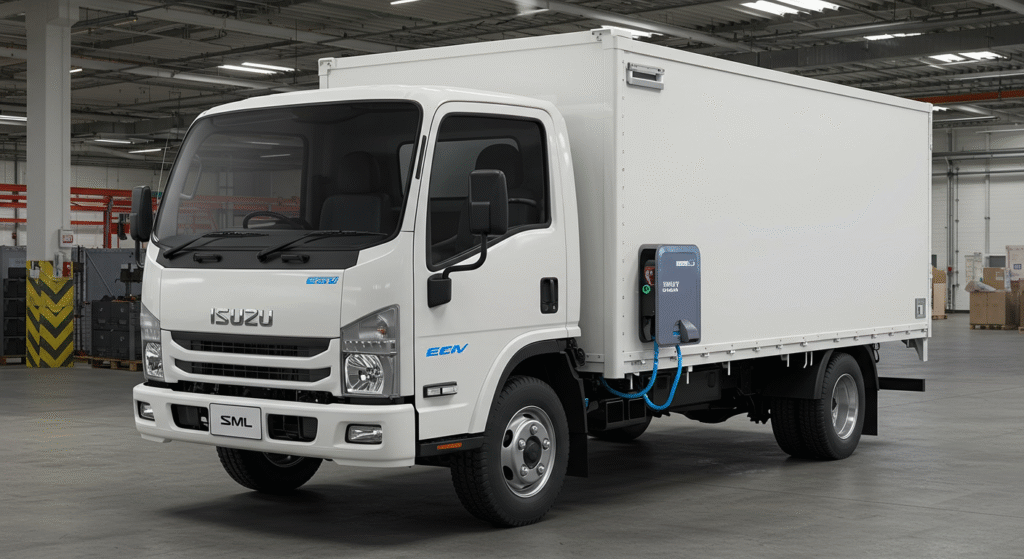
While specific models haven’t been officially announced, the e-LCVs developed under this collaboration will likely be based on existing, proven SML Isuzu platforms. Popular SMLI models like the Samrat, Sartaj, and the modern Global Series trucks form a strong foundation. Adapting these familiar platforms for electrification can speed up development and ensure reliability. Customers can expect vehicles tailored for Indian operating conditions, drawing on SMLI’s long-standing experience.
Leveraging Strengths and Synergies
Vinod Sahay, President and Chief Commercial Officer at Mahindra Truck and Bus, highlighted the strategic rationale. He emphasized leveraging SMLI’s product range and expertise. This allows MTB to quickly introduce robust electric options without starting from scratch. Furthermore, potential synergies in component sourcing between M&M, SMLI, and MTB could lead to cost efficiencies. This integrated approach within the Mahindra group structure is key to the strategy’s potential success. The SML Isuzu Mahindra EV collaboration benefits from shared goals and M&M’s oversight.
Benefits for Both Partners
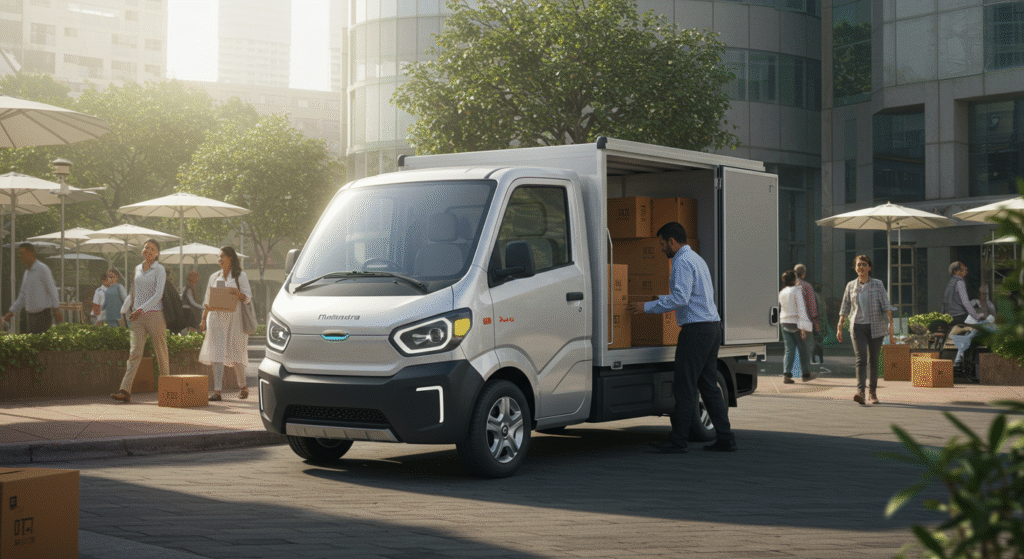
This strategic alliance offers significant advantages to both SML Isuzu and Mahindra Truck and Bus.
- For SML Isuzu: It provides a massive scale opportunity. Manufacturing e-LCVs for the vast Mahindra network means higher production volumes. It also allows SMLI to showcase its EV technology platform widely.
- For Mahindra Truck and Bus: It ensures a much faster entry into the critical e-LCV market with proven products. MTB can focus on its core strengths: customer relationships, sales, and service network expansion for EVs.
Shaping India’s Commercial EV Landscape
The entry of Mahindra-branded, SMLI-developed e-LCVs will intensify competition in the Indian market. This SML Isuzu Mahindra EV collaboration signals Mahindra’s serious commitment to commercial vehicle electrification. It will likely accelerate the adoption of electric trucks, especially in the light-duty segment. Increased choice and competition typically benefit customers through better products and potentially more competitive pricing. This move underscores the broader industry shift towards sustainable logistics solutions.
Conclusion: A Powerful Push Towards Electric Mobility
The SML Isuzu Mahindra EV collaboration is a smart, strategic move poised to significantly impact India’s electric commercial vehicle sector. By assigning the development and manufacturing of e-LCVs to SML Isuzu, Mahindra Truck and Bus gains rapid access to reliable electric products. SML Isuzu benefits from scale and technological validation. This partnership leverages existing strengths within the Mahindra group, setting the stage for a strong presence in the burgeoning electric LCV market and driving the future of sustainable transportation in India.
- Kia Carens vs Maruti XL6: Best MPV for India?
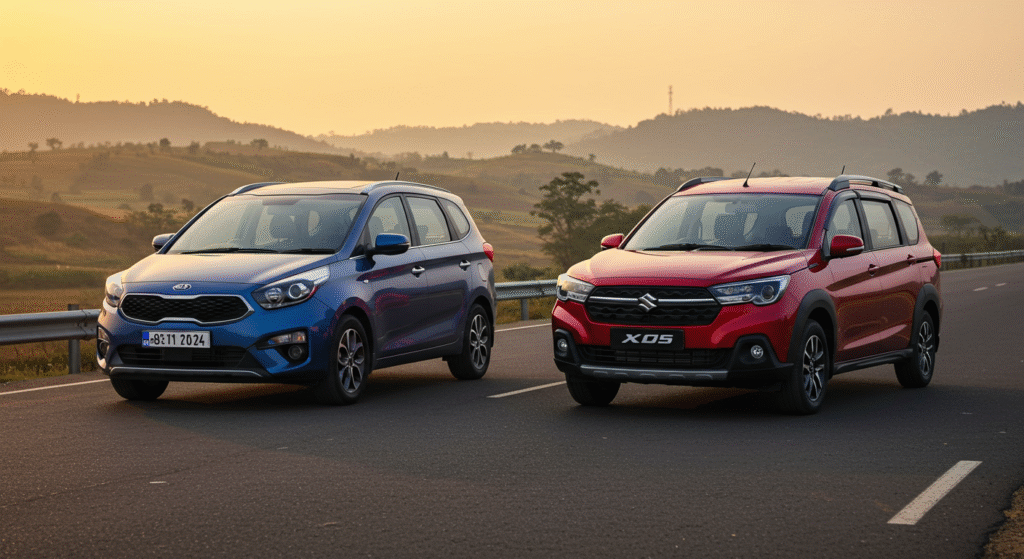 Detailed comparison of Kia Carens vs Maruti Suzuki XL6 MPV specs, features, safety & price. See how the upcoming Kia Clavis might shake up the segment.
Detailed comparison of Kia Carens vs Maruti Suzuki XL6 MPV specs, features, safety & price. See how the upcoming Kia Clavis might shake up the segment. - Volkswagen Golf GTI India Launch: Pre-Bookings Open for the Icon!
 Volkswagen Golf GTI India launch
Volkswagen Golf GTI India launch - MG Gloster Windsor Pro: 8000+ Bookings in 1 Day, Price Hike Follows!
 MG’s new Gloster Windsor Pro variant smashes records with over 8,000 bookings in its first day, prompting a price increase. Discover what’s driving this incredible demand.
MG’s new Gloster Windsor Pro variant smashes records with over 8,000 bookings in its first day, prompting a price increase. Discover what’s driving this incredible demand. - 2025 BYD Seal Launched India: Electric Sedan Starts at Rs. 41 Lakh
 The stunning 2025 BYD Seal launched India, with prices now starting from Rs. 41 lakh! Explore variants, performance, range, Blade Battery tech, and features. Introduction
The stunning 2025 BYD Seal launched India, with prices now starting from Rs. 41 lakh! Explore variants, performance, range, Blade Battery tech, and features. Introduction - SML Isuzu & Mahindra EV Collaboration: Driving MTB’s e-LCV Future
 Mahindra tasks SML Isuzu with developing electric LCVs for its Truck and Bus division. Learn about this strategic EV collaboration and its impact. Introduction
Mahindra tasks SML Isuzu with developing electric LCVs for its Truck and Bus division. Learn about this strategic EV collaboration and its impact. Introduction
